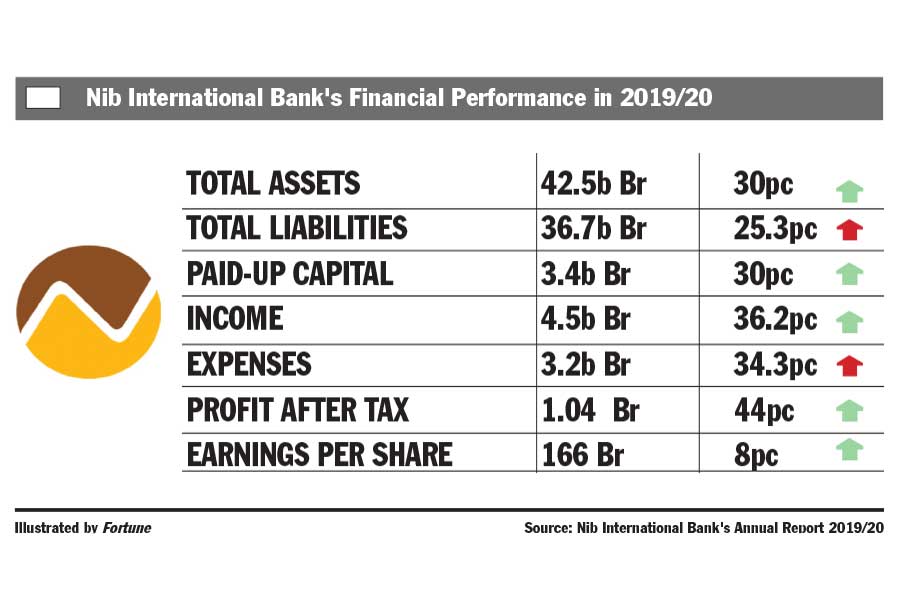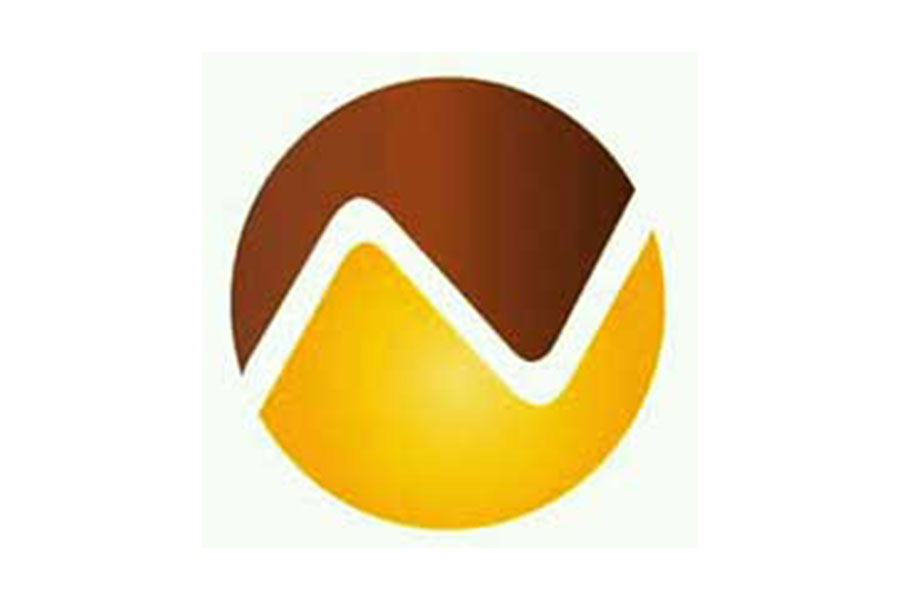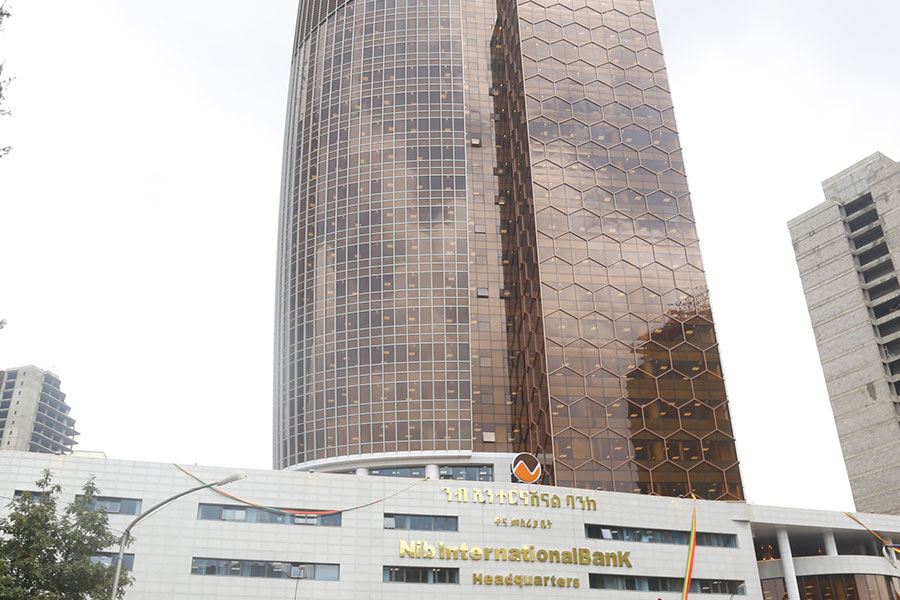
Radar | Sep 10,2022
Nib International Bank, one of the oldest banks, has procured 250 automated teller machines (ATM) for an investment of 76 million Br. Moti Engineering, a prominent local technology and banking solutions provider, will supply the terminals.
Expected to be delivered in four months, 175 of the terminals are "through-the-wall," meaning they are wall-mounted, while the remaining will be deployed in lobbies. Moti was initially awarded to supply 200 machines after winning the bid that was announced on July 20, 2019. Then the Bank placed orders for 50 additional machines from Moti at the same price. The contract includes maintenance and deployment.
Three companies, namely Moti, CBM and Minaye Plc, participated in the bid by submitting their financial and technical offers. Only the first two reached the financial evaluation stage, which revealed Moti as the lowest bidder with an 11-million-Br difference with the second lowest bidder.
Moti, which was founded by five siblings in 2006 with a registered capital of 100,000 Br and now operates with 200 staff at service centres in 40 towns across the country, will supply NCR brand machines. To date, Moti has sold over 6,300 ATMs to all of the state and private banks in the country including the Commercial Bank of Ethiopia.
Last week Moti was awarded a contract to supply 40 ATMs to Lion International Bank and 30 ATMs to Berhan Bank.
Recently, it supplied five interactive teller machines (ITM) to Bank of Abyssinia and is in the process of supplying another 15. The first for the country, ITM allows customers to open an account, deposit and withdraw cash, and perform local money transfers using touch screens and video technology.
The two-decade-old Bank currently operates 170 ATM and 380 Point of Sale (PoS) terminals. It is a member of Premier Switch Solution (PSS), a company owned by a consortium of six private banks that works on delivering electronic payment services to financial institutions with a shared system. NIB is also a founding member of Eth-Switch S.C., a firm owned by a consortium of all banks, including the central bank.
Four years back, Eth-Switch launched the interoperability of ATMs, enabling any cardholder to use a machine deployed by any bank. Last month the company also announced that it had launched the interoperability of PoS.
Currently, Nib has 337,000 cardholders and an average of 109,625 monthly card transactions. Nib’s ATMs service all debit cardholders as well as Visa International, Master Card and UnionPay cardholders.
Nib wants to aggressively work on its merchant management system [a web-based system that enables traders to track real-time transaction data], according to Assefa Yeshanew, vice president of Nib in charge of information systems.
"We're working to deliver banking service to customers at any time, anywhere, through any channel," he told Fortune.
Even though the Bank is late, it is a wise decision to work on increasing its point of presence, according to Ibrahim Dawud, a certified card banker with over two decades of experience in the banking industry.
"It seems the Bank is trying to reverse the trend of it lagging behind in electronic banking," Ibrahim said. "It has been operating less than five percent of the ATMs in the industry."
Close to 5,000 ATMs are operational in the country with over 15 million cards.
In a season where digital banking is emerging and brick and mortar banking is growing weaker, according to Ibrahim, the Bank needs to invest in mobile and wallet banking.
"These technologies require banks' minimum investment compared to other digital banking services," he said, "but enable them to reach a wider stream of customers."
Currently, Nib is undergoing a massive investment to expand its digital banking services, including introducing wallet and agency banking. It is also working on introducing omnichannel banking, which offers a halfway solution between online and traditional face-to-face services, enabling customers to switch from one to another without disruption.
Ibrahim also foresees that stiff competition is coming to the banking sector from the non-bank operators. Recently, the National Bank of Ethiopia (NBE) issued a directive that will enable non-bank companies to provide electronic payment services including providing ATM, PoS, switch operation and gateway operation services, which all had been previously limited to banks and financial institutions.
"Thus the financial institutions need a coping mechanism to survive through this competition successfully," Ibrahim said.
PUBLISHED ON
Oct 17,2020 [ VOL
21 , NO
1068]

Radar | Sep 10,2022

Fortune News | Jan 23,2021

Radar | May 24,2025

Radar | Sep 01,2024

Radar | Aug 25,2024

Radar | Aug 03,2025

Radar | Dec 04,2021

Radar | Jan 01,2024

Fortune News | Sep 04,2021

Radar | Apr 29,2023

Dec 22 , 2024 . By TIZITA SHEWAFERAW
Charged with transforming colossal state-owned enterprises into modern and competitiv...

Aug 18 , 2024 . By AKSAH ITALO
Although predictable Yonas Zerihun's job in the ride-hailing service is not immune to...

Jul 28 , 2024 . By TIZITA SHEWAFERAW
Unhabitual, perhaps too many, Samuel Gebreyohannes, 38, used to occasionally enjoy a couple of beers at breakfast. However, he recently swit...

Jul 13 , 2024 . By AKSAH ITALO
Investors who rely on tractors, trucks, and field vehicles for commuting, transporting commodities, and f...

Oct 18 , 2025
The political establishment, notably the ruling party and its top brass, has become p...

Oct 11 , 2025
Ladislas Farago, a roving Associated Press (AP) correspondent, arrived in Ethiopia in...

Oct 4 , 2025
Eyob Tekalegn (PhD) had been in the Governor's chair for only weeks when, on Septembe...

Sep 27 , 2025
Four years into an experiment with “shock therapy” in education, the national moo...